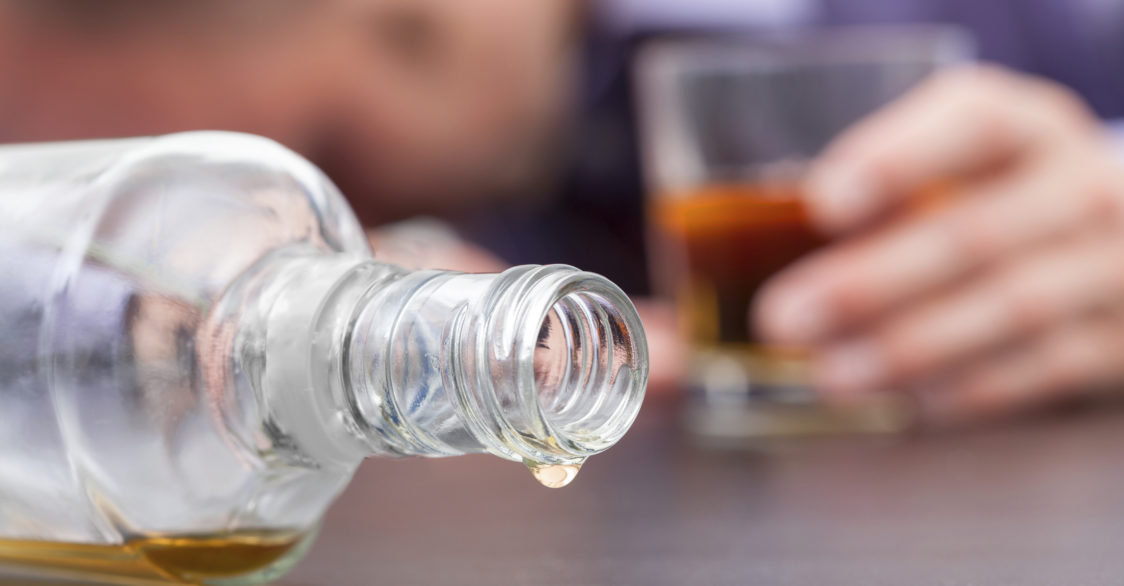For those struggling with trauma, substances such as drugs and alcohol can seem to offer a way to cope with the emotional pain. It’s a false promise, of course. The numbing effects of the drink or the drug will eventually wear off, and the pain will return in force. And with it often comes a new problem — addiction.
Complicating the picture is that people sometimes don’t even realize they’ve been traumatized. “They may think they’re crazy. They may not understand any of their reactions or associate them with where they came from,” explained Christine A. Courtois, PhD, PLLC, an internationally recognized trauma expert and the author of several books on trauma, including It’s Not You, It’s What Happened to You. “It’s especially true if it’s childhood trauma and especially if it was treated like this is just the way it is.”
These hidden roots can make recovery from problem drug or alcohol use even more complex and relapse more likely.
If you drink or use drugs more than you wish you did, it’s worth asking yourself this question: What do get from it? Is it really just a way to socialize, relax or stave off boredom as you may tell yourself? Or could you be seeking something deeper and more complicated — perhaps an escape from trauma of your own?
The Many Sides of Trauma
In its most basic form, trauma is an event or experience that is emotionally overwhelming and that can leave its victim feeling powerless, Dr. Courtois explained.
This can be anything from everyday occurrences such as humiliations that build up over time — the small T traumas, they are sometimes called — to large T events easily recognized as trauma, such as natural disasters, violent assaults and wartime combat. When the emotions associated with the trauma continue to be experienced even though the threat is past, the result can become debilitating enough to meet the criteria for post-traumatic stress disorder (PTSD).
One thing that’s often misunderstood, Dr. Courtois said, is that PTSD is not something only servicemen and servicewomen experience and, conversely, not all troops are traumatized or develop PTSD.
“There are many different types of trauma,” she explained, “and the response to trauma is really highly individualized. Even though we have identified that there are core features of trauma response and PTSD, it really depends on a lot of factors about the trauma itself, how it was experienced, the individual’s personality, how they view it and whether they got support. So there are many, many different aspects and elements that play into it.
For example, trauma is likely to be more complex and tougher to recover from if the person was a child when it happened, if it was repeated or chronic, if the trauma became more severe over time, and if the victim was shamed or blamed.
Children who are traumatized are also more vulnerable to problems with later substance use. In fact, studies have found that up to two-thirds of those in addiction treatment report being sexually, physically or emotionally abused as a child. Such histories also boost the risk of relapse back into drinking or drug use, Dr. Courtois said, meaning addressing the trauma should, in most cases, become an important part of the addiction treatment process.
Opening Old Wounds to Heal Them
Not everyone agrees that painful events from the past should be revisited in order to overcome addiction, however. Mutual support organizations such as Alcoholics Anonymous, for example, have traditionally encouraged looking forward rather than back. And some see opening old wounds as further traumatization.
There is no single answer for everyone as to whether past trauma should be revisited, Dr. Courtois said, “but historically what has happened in addiction treatment is there has been far too little attention paid to the role of trauma. For those with active PTSD especially, this means that when they get clean and sober, it’s likely to emerge again and put sobriety at risk. In these circumstances, the answer is yes, the trauma needs to be acknowledged.”
Avoidance of the trauma can also make the post-traumatic reactions more severe, she explained. “So even though a lot of therapists say, ‘Well, dealing with it is going to make it worse,’ in reality what has been found is dealing with it is ultimately in the interest of healing it and helping the person have less need for coping mechanisms for something that feels out of their control.”
‘Healing Is Possible’
For those ready to seek help for their addiction and to explore the issue of trauma, look for treatment programs that offer trauma-informed care or concurrent treatment, Dr. Courtois said. Such programs can help you determine if you’re using substances as a way of self-medicating away intrusive memories or of disconnecting from feelings of anger, guilt or shame, or if your use is perhaps a way of building camaraderie with other users and, in a sense, creating a new family unit to replace a troubled one. Recovery from trauma-based addiction is a process, and one that takes time and effort, she explained, “but healing is possible.”
As you explore your past, it’s also important to remember that addressing trauma isn’t about trying to find someone to blame for your substance use, Dr. Courtois noted. It’s about seeking the most effective path to a happier, healthier life. “You have to be responsible for your behavior and your recovery, but it is also important to look at root causes and to look underneath at what is driving the whole mechanism,” she said. “It may not be your fault that you have the addiction, but you’ve got to deal with it.”
Source
Substance Abuse Treatment for Persons with Child Abuse and Neglect Issues
//www.ncbi.nlm.nih.gov/books/NBK64896/








